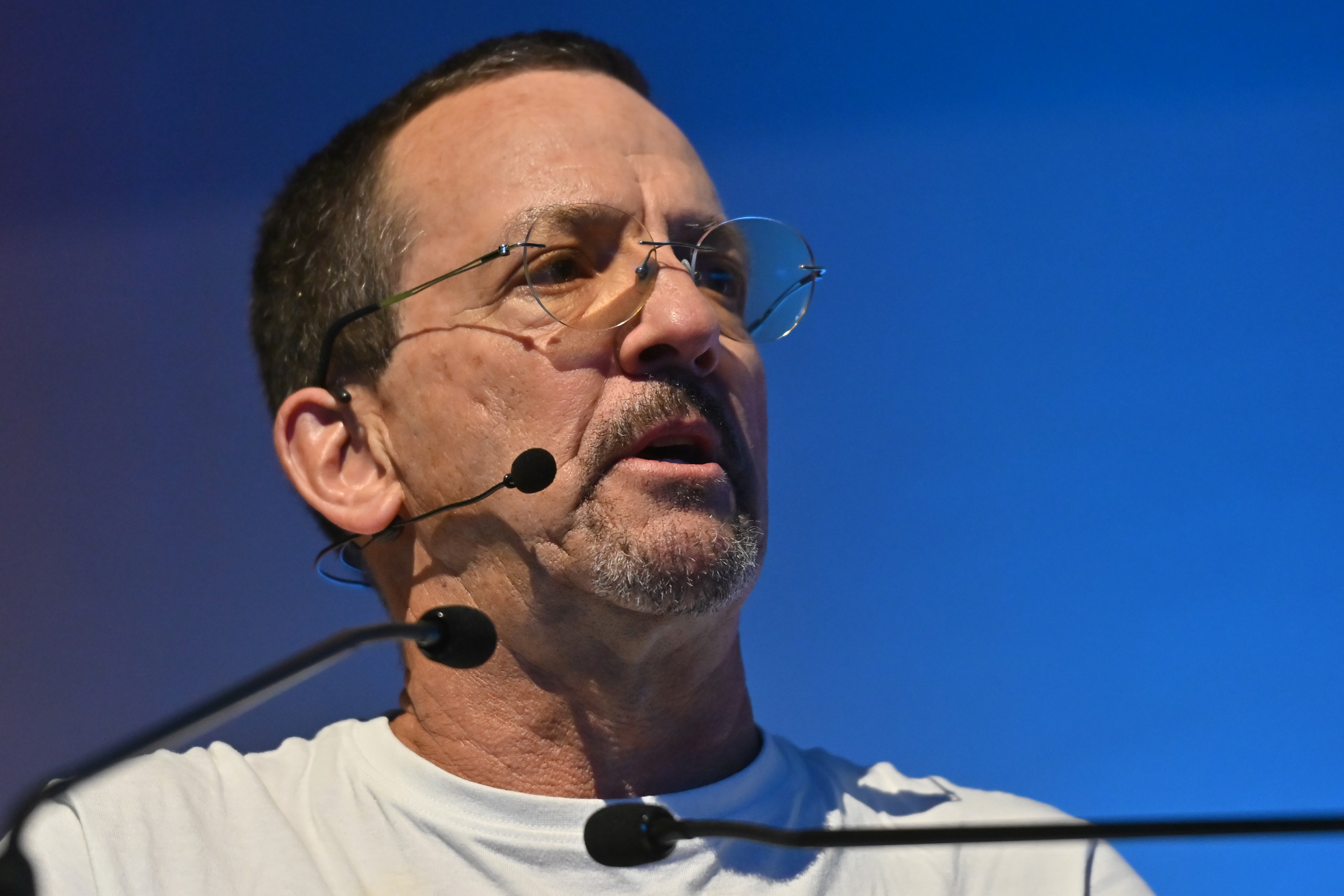Every day in South Africa, an average of 30 children die from starvation and extreme malnutrition – nearly 11,000 deaths a year, deaths that could have been prevented if the children had had reliable and sustainable access to food.
This is what Mark Heywood, activist, former Maverick Citizen editor and founder of the Justice and Activism Hub (JAH), told a packed Cape Town International Convention Centre during The Gathering 2025, Daily Maverick’s flagship annual event, on Thursday, 28 August.
In his presentation – The Cost of an Empty Stomach – Heywood highlighted the depths of South Africa’s hunger crisis, from the failure to turn the Constitution into a living document to the government’s failure to adequately tackle the crisis, and retailers’ massive profits on food while children die from malnutrition.
/file/dailymaverick/wp-content/uploads/2025/08/Z63_4559.jpg)
“[These children] die in a country which has this much-vaunted, brilliant Constitution, something that I have resorted to and turned back to time and time again in my activism, a Constitution that says everyone in South Africa has the right to sufficient food and water, and which is even more strong when it comes to children’s rights to food, because it says every child has a right to basic nutrition,” Heywood said.
He reminded the audience that Section 28 of the Constitution states unequivocally: Every child has the right to basic nutrition.
Unlike other social and economic rights that are qualified by progressive realisation and available resources, the right to food for children is absolute.
Read more: Ignoring child nutrition in South Africa can’t be the next big mistake
“Since the dawn of our Constitution, malnutrition among children should have been unlawful,” he argued. “And yet there is probably no greater example of the gap between the promise and the practice.”
Heywood said that what angered him the most was that South Africa’s hunger crisis was not unfolding in a country in the throes of war or famine, but in a nation with an agricultural surplus and advanced food systems.
“In fact, the worst thing to think about is that these children who die of hunger usually die with a shop across the road that has all the food that they would need if they were to be able to live, that is how grotesque it is,” he said.
Hunger as evidence of state failure, corporate culpability
The failure to tackle malnutrition and hunger, Heywood said, was an example of state failure, evidenced by:
- The lack of systematic monitoring of child health;
- Food security scattered across nine government departments;
- Weak regulation of the food market; and
- Corruption in key institutions such as the Department of Social Development further eroding accountability.
However, Heywood said that responsibility also lay with retailers and corporations. While millions went hungry, food giants like Shoprite made profits of R20-million a day. Their CEOs earned packages worth tens of millions annually, even while rejecting proposals to reduce the prices of essential foodstuffs for children.
He drew parallels with the pharmaceutical industry during the HIV/Aids crisis when drug companies insisted that antiretroviral medicines could not be produced for less than R5,000 a month – until activist pressure forced prices down to R150.
Heywood’s call was simple but urgent: hunger in South Africa is preventable. It is not a natural disaster, but a human-made failure of will, policy and accountability.
“The power to end these crimes, the power to create equality and dignity and hope in our country, starts with us. I appeal to you to take advantage of that power and help us to end hunger,” he said. DM




 The cost of an empty stomach: why we must act now with Mark Heywood, activist at Daily Maverick’s The Gathering 2025. (Photo: David Harrison)
The cost of an empty stomach: why we must act now with Mark Heywood, activist at Daily Maverick’s The Gathering 2025. (Photo: David Harrison)